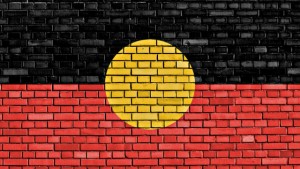Home » Commentary » Opinion » Lack of accountability biggest issue in Indigenous affairs
· Spectator Flat White

 For too long governments have convinced themselves they are contributing to better Indigenous outcomes simply because they are spending money on Indigenous programs.
For too long governments have convinced themselves they are contributing to better Indigenous outcomes simply because they are spending money on Indigenous programs.
As a result of the belief that money equals results, any funding cuts are fiercely challenged. A prime example of this is the Redfern Statement — a lengthy document developed by 18 Indigenous groups during the last federal election, backed and supported by organisations such as the Close the Gap Steering Committee and Amnesty International.
Key among the 44 calls for government action is the plea to reverse half a billion dollars in federal funding cuts and review the way federal funding is distributed and managed.
This week, Indigenous Minister Nigel Scullion met with the proponents of the Redfern Statement to discuss their demands.
While there is definitely a case for reviewing the procurement process for funding Indigenous programs, spending more money on programs is not the answer — greater accountability for achieving outcomes is.
Without formal needs assessments and more accountability measures to track what is happening to the money, it impossible to know whether the lack of progress in improving Indigenous outcomes is because there is not enough money relative to need, or because the money is being wasted.
To ensure programs match Indigenous people’s needs, the government must engage more closely with Indigenous people and communities than it has done in the past.
At the same time, the history of Indigenous service delivery is littered with examples of wastage and even outright fraud. Examples include, more than $2 billion of federal funding to Indigenous housing associations in the Northern Territory that couldn’t be accounted for, and a former project manager allegedly invoicing a remote Western Australian community for $3 million worth of work that was never carried out.
In some cases, government has acted as permissively as neglectful parents by not expecting organisations (Indigenous and non-Indigenous) to formally account for how they have spent program funding.
So while it is heartening to read that Minister Scullion intends to engage in more constructive dialogue with Indigenous communities, he must also ensure organisations are held accountable for how they spend taxpayer’s funds.
Lack of accountability biggest issue in Indigenous affairs